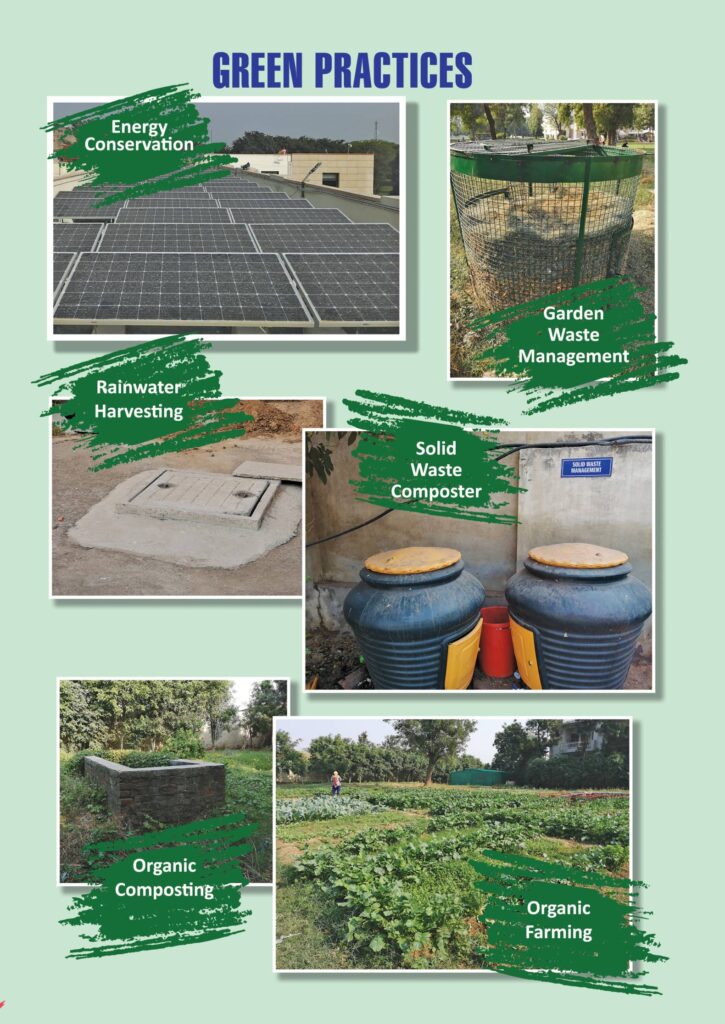Plastic Free Campus
The use of plastic is not only harmful to our environment but our human body as well. Keeping this in view, the college has taken an initiative to ban single use plastic in the college campus. The verdict to ban single-use plastic items was taken on 15th September i.e. on the launch “Swachta hi Sewa” Abhiyaan by Hon’ble Prime Minister of India Sh. Narendra Modi. The students and staff are encouraged to bring their own bottles and cups instead of using plastic ones. Usage of plastics disposable items have been stopped in canteens.
Rain Water Harvesting
The college recognizes its social responsibility towards maintaining environmental sustainability and adheres to the guidelines in constructing rainwater harvesting structures. The college has two rainwater harvesting system which is present in both of its campuses. The unutilized water from RO drinking water systems contains minerals which diverted to rain water harvesting unit and is useful in restoring the minerals to the soil.
Green Landscaping
The college has a contract with private vendors in maintaining its green landscapes and trees in both the campuses. The gardeners also make efforts towards making the environment soothing and fresh for the students and staff by planting seasonal flowers. Being an educational institution, the campus adheres to the protocol of “No Smoking Zone” in each corner of the institution.
Waste Management
Since the college has a vast green landscaping, the horticultural waste so produce such as dried leaves or plant clippings etc. are being composted using the Garden Composter. The waste consisting of biodegradable materials such as kitchen waste collected from staff quarters and especially from the canteens are collected in “AAGA (Kitchen waste composter)”. Other than this, the college also has a vermi-compost pit to compost the substantial amount of dry leaves and garden waste.
Besides this, all kinds of electronic waste, such as batteries, unserviceable electronic devices, etc. are given away to scrap dealers and the paper waste generated in the library, office, etc. are given to “Greenobin (Recycling Company)” who recycled the waste into useful stationary products.
Energy Conservation
Solar energy is one of the clean and green energy available in abundance to us and is the best alternative to conventional dependence on fossil fuels. Utilisation of solar energy for power generation will not only reduce the carbon footprints but also produce pollution free electricity. In this contest, our college has taken initiative an initiative in installing Solar Rooftop Panels, of 10 kW in City Campus and 20 kW in New Campus. The college is further looking forward to increase its energy storage capacity for a sustainable development.
On a similar note, since light-emitting diode (LED) is one of the most energy-efficient and rapidly developing lighting technologies today. LEDs use at least 75% less energy, and last 25 times longer, than incandescent lighting products. Keeping this mind, the lighting power requirement in City campus is 100% met through LED bulbs and subsequently the Alwar-road campus is gradually shifting towards replacing the CFL and conventional tube lights by LEDs.







